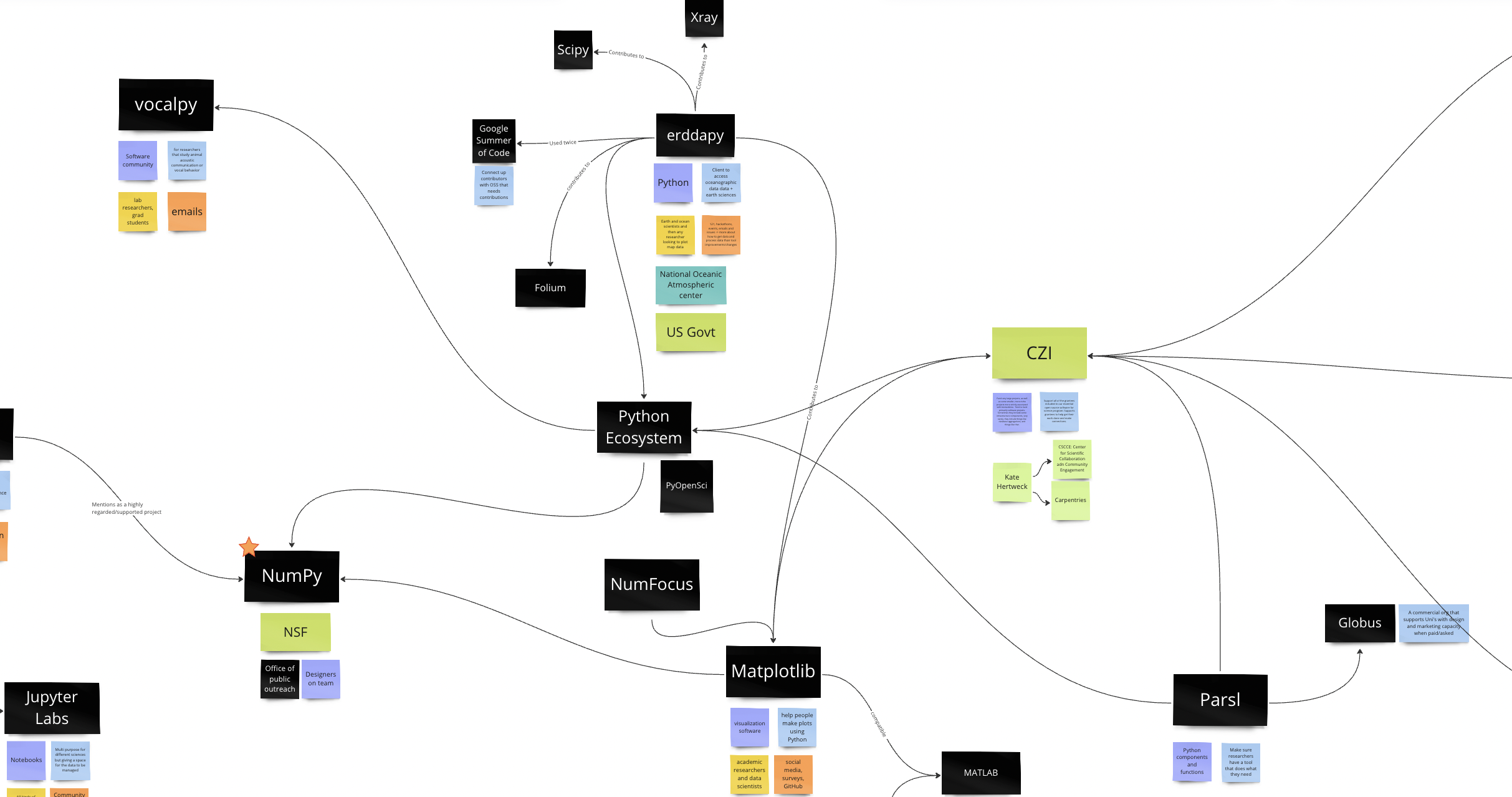
A look at the ecosystem
What are these projects? Who maintains them? How do they start?
The researchers and technologists we spoke with found their way to SROSS projects in diverse, but ultimately familiar ways. Many started out as PhD students, introduced to a software project through their research or by working in a lab. Others did the important work of convincing other academics who were developing tools to make them open. Participants mentioned having a deep desire to work on OSS in particular and seeing a serious need that their project could fill.
There was broad acknowledgment from participants that a large part of the appeal, interest, and passion that comes with working on OSS comes from the community of maintainers and users. One Drupal enthusiast from Brazil shared that in the Drupal community: “the people are all using the technology and the software as an excuse to meet and share, but of course we are passionate about the technology, which all brought us together.” Along with shared interest and passion, the OSS community “usually takes [a project] on and we get feedback or it takes a life of its own and people develop it and make it a lot better than it was at the beginning.” Impact, scientific progress, and commitment to OSS are all values we saw in the participants’ responses, and are explored in the following chapter.
To see the true range of projects we spoke with, in discipline, size, and scope, take a look at our ecosystem map. If your project team would like to be added, please submit an issue here.

Disciplines represented:
-
Vocal behavior
-
Geophysics
-
Oceanography
-
Data science
-
Biology
-
Genetics
-
Citizen science
-
Ethnography
-
Library science
-
Astronomy
-
Meteorology
-
Earth systems
-
Climate science
-
Engineering
-
Chemistry
-
Metagenomics
-
Geography
Types of software represented:
-
Python data tools
-
Jupyter Notebooks
-
Visualization
-
Python libraries
-
Data analysis
-
Data cleaning
-
Data collection for citizen science
-
Digital platforms
-
Data archive
-
PHP
-
Digital imaging
-
Creating access to HPC resources
